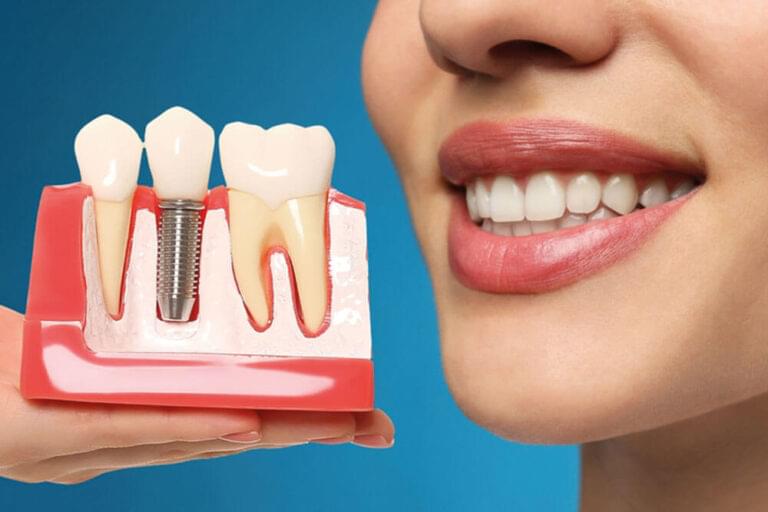

Teeth play a crucial role in our daily lives, allowing us to eat, speak, and smile with confidence. But when teeth are lost, it can be not easy to find a replacement option that feels natural and functions properly. If you’re considering dental implants, understanding how they compare to natural teeth and other options is essential. A common question people ask is, are teeth bones? While they may seem similar, teeth and bones have distinct differences.
Teeth are made up of several layers, each with its own function. The outermost layer, called enamel, is the hardest substance in the human body. Beneath the enamel is dentin, which is slightly softer but still very strong. The innermost part of the tooth, known as the pulp, contains nerves and blood vessels that help keep the tooth alive.
Unlike bones, teeth do not contain bone marrow, and they cannot regenerate once they are lost. This is why replacing missing teeth with a durable, long-term solution like dental implants is so important. Implants can give you back the functionality and aesthetics of natural teeth, helping to restore confidence in your smile.
Many people assume that teeth and bones are the same, leading them to wonder, are teeth bones or something else entirely? While both contain calcium and are hard structures in the body, teeth are actually quite different from bones in their composition and function.
Bones are made of collagen and minerals, primarily calcium and phosphorus, which give them flexibility and strength. Teeth, on the other hand, are composed of enamel, dentin, and cementum. Enamel is much harder than bone, but it lacks the regenerative properties of bone tissue.
Another key difference is that bones heal when broken, while teeth do not. If a tooth is damaged or lost, the only options are repair or replacement. This is where dental implants come in as a superior solution. Implants not only replace lost teeth but also preserve the underlying jawbone, preventing the bone loss that typically occurs when teeth are missing.
Now that we’ve answered the question, are teeth bones, let’s explore what dental implants are and how they can help replace missing teeth. Dental implants are artificial tooth roots made of biocompatible materials like titanium. They are surgically placed into the jawbone to provide a strong and stable foundation for replacement teeth. Over time, the implant fuses with the bone through a process called osseointegration, creating a sturdy base for a dental crown or bridge.
For those who are looking for a long-term alternative to dentures, implants provide a natural look and feel while preserving jawbone health. Unlike dentures, which can shift and cause discomfort, implants remain fixed in place, allowing for normal eating and speaking. This stability is a key reason why implants are often considered the best solution for tooth replacement.
When considering tooth replacement options, weighing the long-term benefits is important. While dentures and bridges may seem like more affordable solutions upfront, they often require frequent adjustments, repairs, or replacements. Over time, these costs add up, making implants a more cost-effective choice in the long run.
Dental implants are designed to last a lifetime with proper care. Traditional dentures and bridges typically need to be replaced every 5 to 10 years. Choosing implants can save you the hassle and expense of repeated replacements.
One major drawback of dentures is that they do not stimulate the jawbone, leading to bone loss over time. Since implants act as artificial tooth roots, they help maintain bone density and prevent facial sagging, which can occur when bone deteriorates. Bone loss can also impact the alignment of your remaining teeth, leading to further oral health issues. Implants help to stabilize the entire mouth, making them a better option for overall dental health.
Unlike removable dentures, implants function just like natural teeth. They allow you to eat all types of foods without worry and eliminate the discomfort of loose-fitting dentures. Implants also help preserve the bite structure, preventing issues like teeth shifting or bone resorption that can occur with missing teeth.
If you’ve ever wondered whether are teeth bones, the answer might surprise you. While both contain calcium and provide structure, teeth are actually more like an independent parts of the body rather than a type of bone.
Unlike bones, which heal naturally, teeth do not grow back once lost. This means that replacing a missing tooth is essential for maintaining oral health and function.
Dental implants provide a solution that mimics natural teeth while also preserving bone density. Since the implant fuses with the jawbone, it prevents the bone from shrinking, which often happens when teeth are missing. In fact, the stimulation from the implant can even help reverse some of the bone loss that may have already occurred due to missing teeth. This makes implants an excellent option for those who want to maintain the integrity of their jawbone and facial appearance.
Additionally, some mistakenly believe that because teeth are similar to bones, losing them won’t impact the structure of the face. However, when teeth are lost, the surrounding bone deteriorates over time. This can cause facial sagging and changes in appearance, which implants help prevent. By preserving bone health, implants also help to maintain the natural contours of the face, keeping you looking youthful and vibrant.
If you’re considering dental implants, knowing what to expect during the process is helpful. The procedure typically involves several steps:
Your dentist will evaluate your oral health and take X-rays to determine if you are a good candidate for implants. They will also discuss your treatment options and plan the procedure accordingly. This step ensures that the implant process will be as smooth and successful as possible.
During surgery, the implant is placed into the jawbone. This step is performed under local anesthesia to ensure comfort. After placement, the bone will begin to fuse with the implant over the next few months. This process, called osseointegration, is essential for ensuring that the implant becomes a permanent part of your jaw.
Once the implant has integrated with the bone, an abutment is attached to connect the artificial tooth. Finally, a custom crown is placed on top, completing the restoration. This crown is designed to match the shape, size, and color of your natural teeth, providing a seamless and natural-looking smile.
Since teeth and bones are different, taking care of your dental implants is essential to ensure their longevity and function. While dental implants themselves do not decay like natural teeth, maintaining the surrounding gum tissue and jawbone health is crucial to preventing infections and complications.
Proper oral hygiene is key to keeping your implants in top condition. Here are some tips for ensuring your implants remain healthy:
Although implants are designed to last a long time, regular visits to your dentist are vital for ensuring any potential concerns are addressed early on. Prompt treatment can prevent complications and ensure the longevity of your implants, allowing you to enjoy a healthy smile for years to come.
If you’re weighing your options, it’s helpful to compare dental implants with other tooth replacement methods:
If you’ve ever asked, are teeth bones, understanding their differences can help you see why dental implants are the best option for tooth replacement. While teeth share some characteristics with bones, they are unique structures that require specialized care and replacement when lost.
Consider their long-term benefits if you’re beginning your journey into dental implants. They provide durability, comfort, and a natural appearance that other options can’t match. Investing in implants is not just about restoring your smile—it’s about protecting your overall oral health for years to come.
Total Freedom is a custom solution and one of the most well recognized dental implants providers in Scottsdale and Phoenix.
We’re about providing the treatment that best fits you. That could mean a full set of new teeth. It could mean fewer implants than you anticipated. It could mean you don’t require any implants at all. When we can save the teeth you have, that’s what we recommend.
People travel from all over the country to Arizona for consultations and treatment with Dr. Kaiser. It’s unquestionably worth the trip.
Whether you’re seeking a first or second opinion, or even if you decide to choose another dental provider, a consultation with Dr. Kaiser will provide you with invaluable insights into your unique dental situation and the available options. You won’t be disappointed.
info@totalfreedomdental.com
Both dental implants and dentures have their pros and cons. And both dentures and dental implants have come a long way in the past 10
What Dental Implants Look Like: A Complete Guide to Natural Smiles Have you ever asked yourself, what do dental implants look like once treatment ends?
How Much Do Dental Implants Cost? Worrying about price is normal. It’s like standing in an auto repair shop after hearing a strange engine noise:

